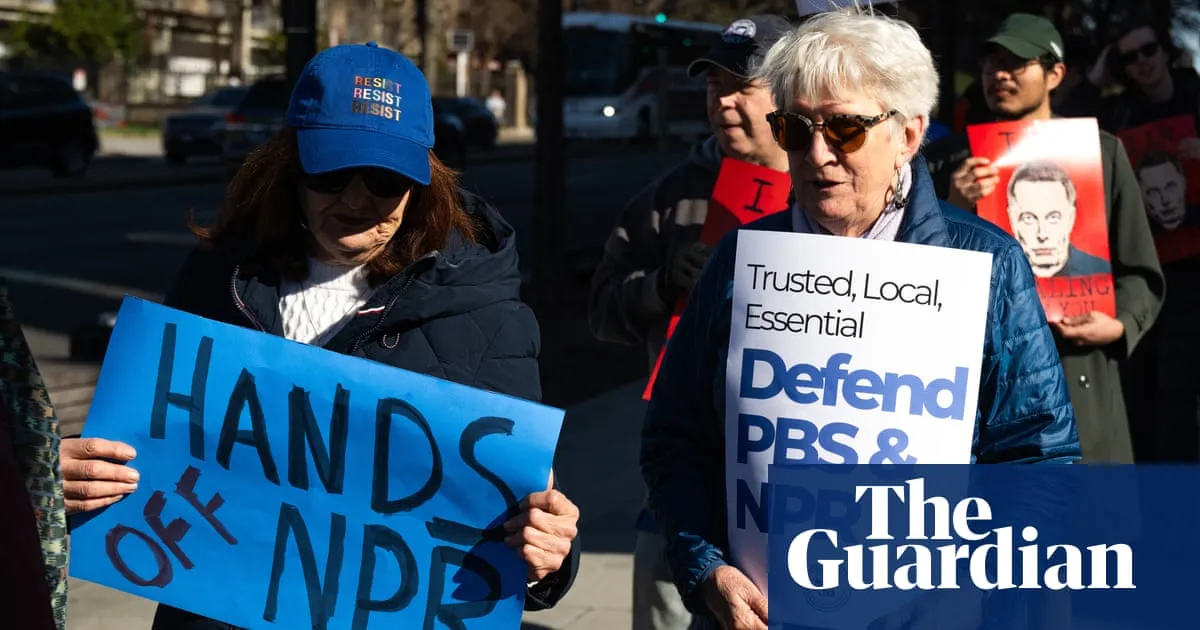
Leaders of public broadcast stations are expressing strong disapproval following the Senate's recent approval of a bill that intends to cancel all federal funding for public broadcasting programs, including PBS and NPR. This legislation, which includes $9 billion in spending cuts to public broadcasting as well as foreign aid, has ignited concern among advocates for public media.
Paula Kerger, president and CEO of PBS, voiced her concerns, stating that the Senate's decision “goes against the will of the American people.” She emphasized that “these cuts will significantly impact all of our stations, but will be especially devastating to smaller stations and those serving large rural areas.” Kerger highlighted the critical role that public broadcasting plays in providing free local programming and delivering important emergency alerts, which are now at risk due to impending budget cuts.
Kerger remains optimistic, declaring, “Despite today’s setback, we are determined to keep fighting to preserve the essential services we provide to the American public.” This sentiment is echoed by NPR CEO Katherine Maher, who pointed out that “nearly three in four Americans say they rely on their public radio stations for alerts and news for their public safety.” Maher urged the House of Representatives to reject this elimination of funding, arguing that it directly harms communities and jeopardizes public safety.
Kate Riley, president and CEO of the advocacy group America’s Public Television Stations, expressed her devastation at the Senate's vote to eliminate federal funding, stating that local public television stations provide essential lifesaving public safety services and educational content to their communities at no cost. She emphasized the vital role these stations play in connecting communities through local programming.
Loris Taylor, head of Native Public Media, described the Senate's decision as “deeply troubling.” Taylor, who oversees a network of 57 Native radio stations, had previously urged South Dakota Republican Senator Mike Rounds to reject the funding cuts. Following Rounds' endorsement of the bill, she warned that the cuts pose an “immediate threat to the survival of small, rural, and Tribal stations across the country.” These stations are often the only source of local news and emergency alerts, making federal support crucial for their continued operation.
Tom Abbott, general manager of KFSK community radio in Petersburg, Alaska, shared similar concerns regarding the impact of funding cuts. He stated, “This destructive rescission of CPB funding will result in immediate and serious cuts to stations’ local services and, in some cases, the total closure of stations, particularly in rural communities.” Abbott noted that KFSK is facing a 30% budget cut, which will force staff reductions and a decrease in local service.
“Our broadcast day is nearly 60% locally produced content,” Abbott added. “Ironically, this revenue cut will likely result in more NPR-produced content if we can continue to raise enough donations locally to remain relevant and on the air.”
LaFontaine Oliver, president and executive chair of New York Public Radio, expressed concern over the implications of funding cuts, particularly for smaller stations. “While CPB funding represents a relatively modest percentage of New York Public Radio’s revenue, the loss will still have a notable impact on our ability to serve audiences in our city and region,” Oliver stated. He emphasized that communities lacking commercial broadcast options will feel the effects most severely.
In response to the threats posed by the Trump administration to public broadcasting, New York Public Radio created a new role for LaFontaine as executive chair. This position aims to focus on the long-term sustainability of NYPR and the broader public radio system, including fundraising and collaboration efforts to support smaller stations.
Other public media stations are also making adjustments in response to the funding cuts. KQED, based in San Francisco, recently announced a 15% reduction in its workforce, citing “a number of concurrent attempts to eliminate or impair federal funding for public media.” President Michael Isip stated, “We are deeply troubled that the Senate voted to eliminate congressionally approved federal funding for public media.”
Isip warned that if enacted, the bill would create serious financial challenges for NPR, PBS, and all local stations like KQED. He emphasized that the greatest impact will be on the communities that rely on public media for essential services, such as emergency communications and educational programming, particularly in rural areas where local public media stations serve as the primary source for critical information.